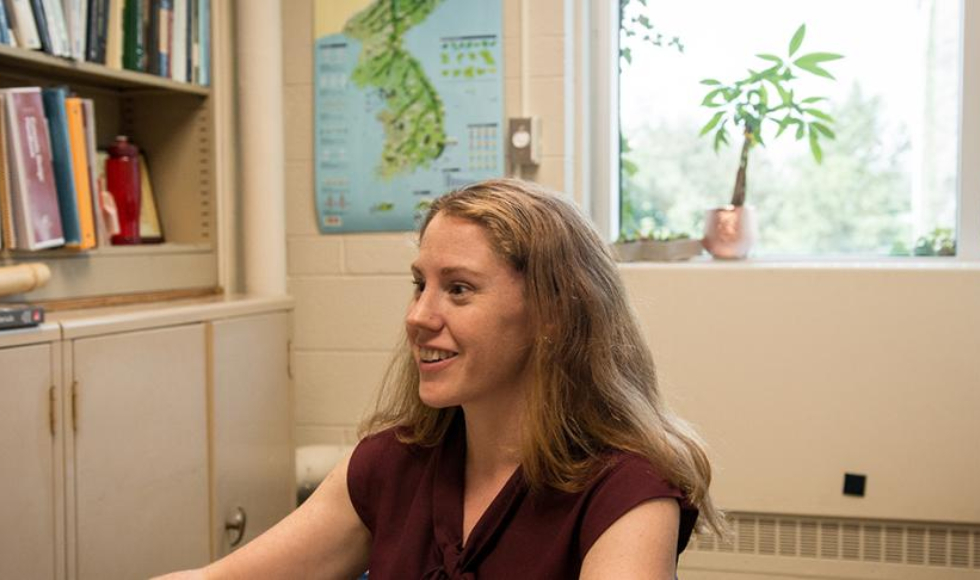Engineering Fresh Faces: Tracy Becker

Photos by Kareem Baassiri
BY Sara Laux
August 30, 2018
Welcome to Fresh Faces. In this series, we’re highlighting 43 Engineering faculty members, all hired within the last five years, who are doing interesting and innovative things in the lab and the classroom.
Tracy Becker is an assistant professor in the department of Civil Engineering whose work focuses on advanced structural systems and their performance in natural or man-made disasters. She has been with McMaster since 2014. Here, she talks about her research and her love of travel.
On her research
I’m a structural engineer, and I’m also an earthquake engineer, and I exist in the nexus between the two.
While I’ve traditionally done more earthquake engineering, we’ve been branching out recently, looking at how to develop better performing structures for many types of natural or man-made disasters.
When you think of building materials you usually think of wood, or steel, or concrete – I’m interested in high-performance materials and building systems, which aren’t going to perform like a typical beam or a column.

On why she chose engineering
I always liked math and physics, because I could learn a concept, then apply it over and over again.
I originally thought I wanted to be an architect, but that requires being more artistic, so I went into engineering. I started in mechanical engineering, but switched into structural pretty quickly.
In structural engineering, I can easily visualize how things are going to come together.
It’s easy for me to imagine what might happen under different scenarios. My work is also easy to explain to other people – most people have seen a building, so I’m able to relate my research to something that’s already familiar.
On her students
I have lots of wonderful grad students, and each year I hope they’ll accomplish important research milestones.
It makes me really happy when they do well – every time they reach a new milestone, it’s like I’m reliving the experience as well. I have a couple who are working on what are “out of the box” research areas for me, like material-level architectural for steel systems and ground-motion formulation, so I’m learning a lot with them.
On grappling with tough problems
When you’re thinking about a tough problem, it always helps to take a little time off, or think about it under multiple circumstances. I’ll think about things on my bike ride home, or I’ll talk about it with my colleagues. In general, even if you think you have a solution, just saying it loud to someone who’s listening – so you can justify it – makes a big difference. Sometimes I’ll talk to my grad students, and present them with an idea that might not be correct but can be a jumping-off point for brainstorming.
On travelling
I’m lucky, because I get to travel a lot – I have friends and colleagues all over the world. I love travelling and getting to see them and experience their cultures – that’s one of my favourite things about my life.
I lived in Japan for a year and a half, so I feel really comfortable there – outside of Kyoto, it’s a peaceful, calm place with delicious food. When you’re in a new place, it’s a little bit hectic, but I don’t feel like that there because I can get around on my own – even though my spoken Japanese isn’t great!
In my research space, I…
Try to look at the details – that’s important. Our experiments are different from other disciplines – you put in a lot of work at the frontmonths or even a year, then you do the experiments for a couple of weeks, then you dismantle them and you’re done– and that may be all a student does in terms of testing, so you have to be really meticulous in your planning and your data analysis during testing.
It’s easy to see the big picture, but if you’re not looking at the small details, you’re going to wish you did once the test is over.
Outside my research space, I…
Try to wear sunscreen! And be a nice person and a good neighbour. Sometimes that takes a little extra thought, but I think it is important to try.


